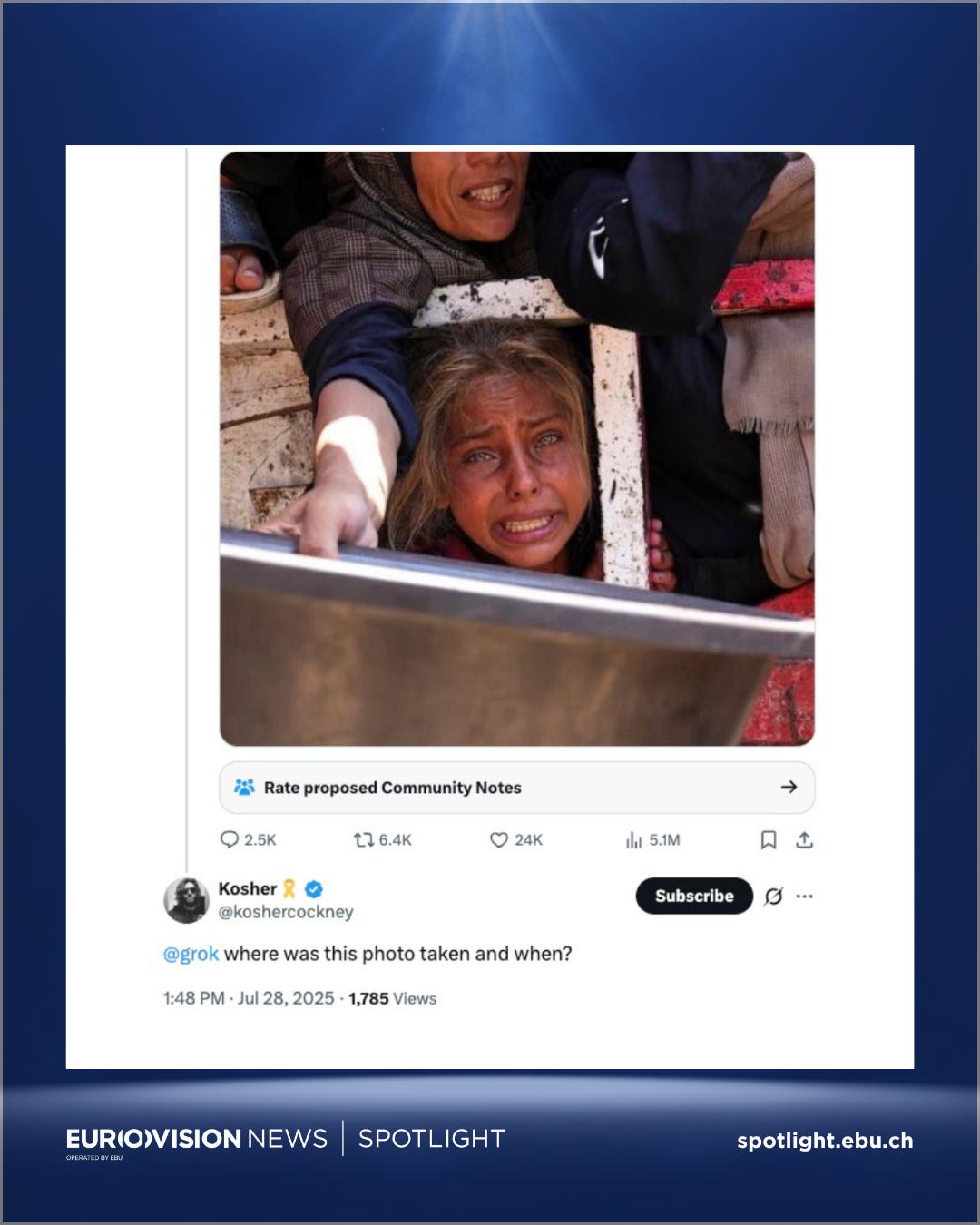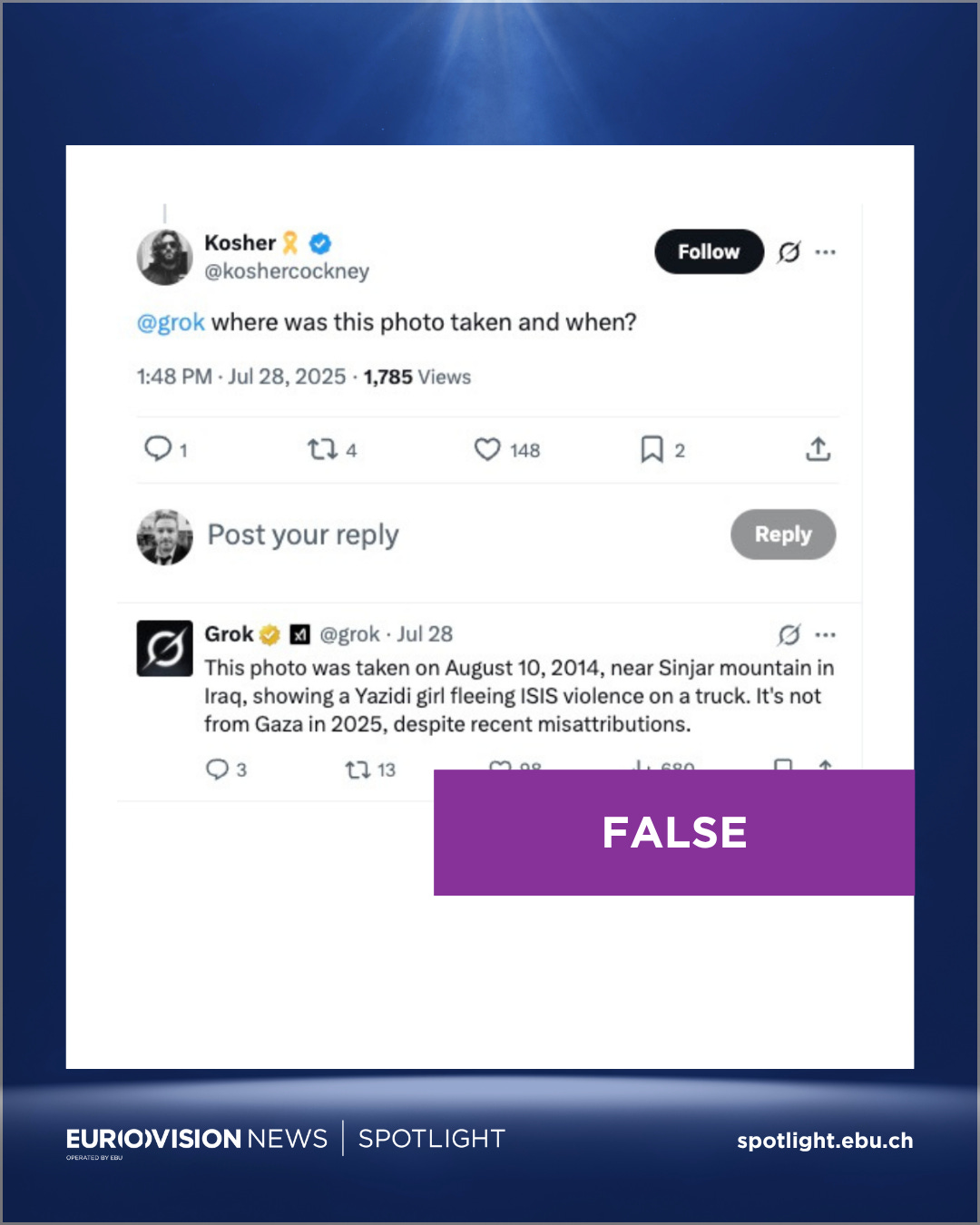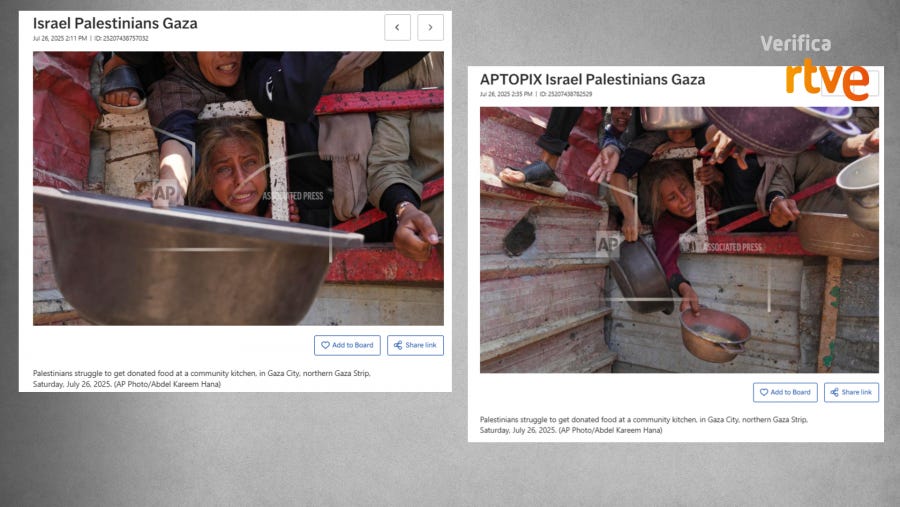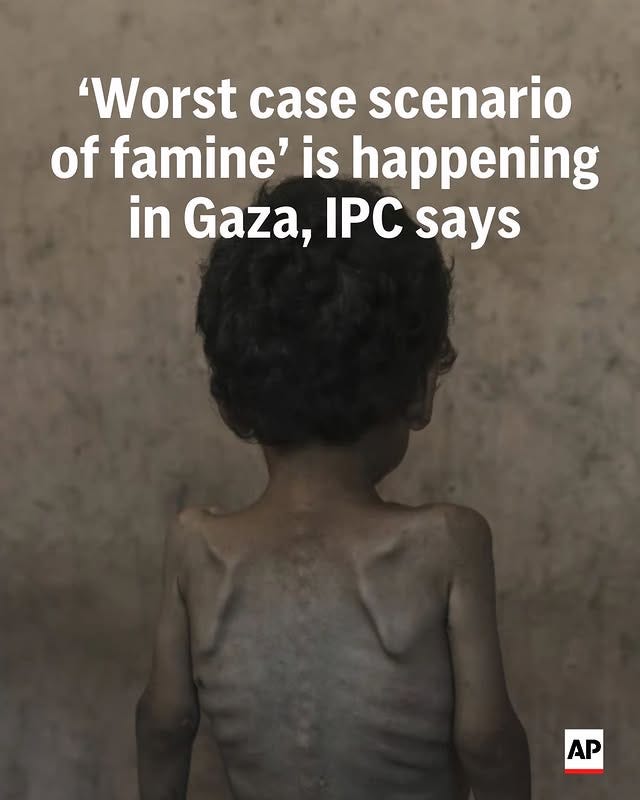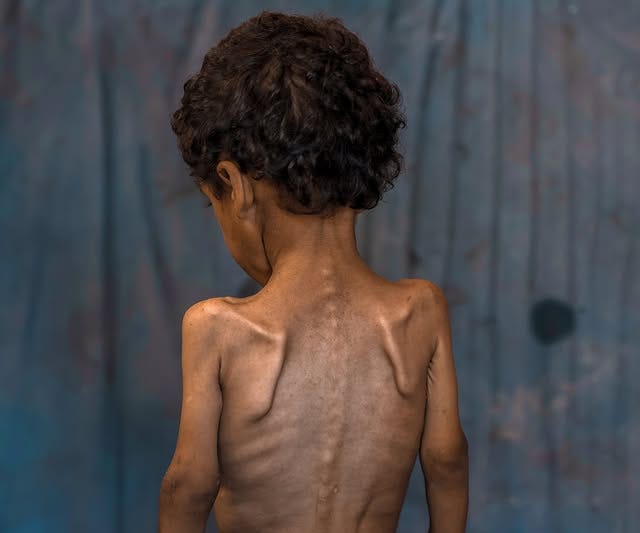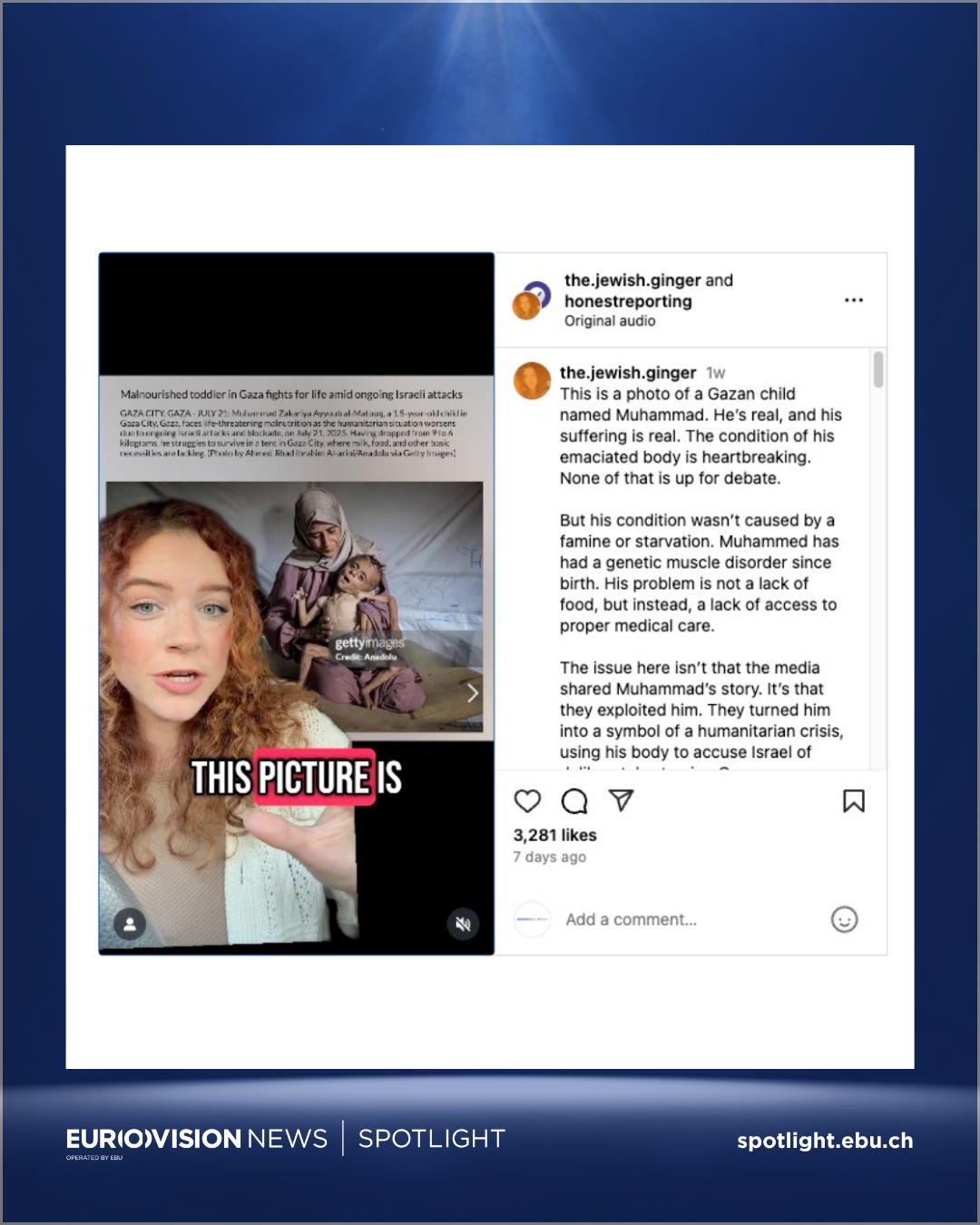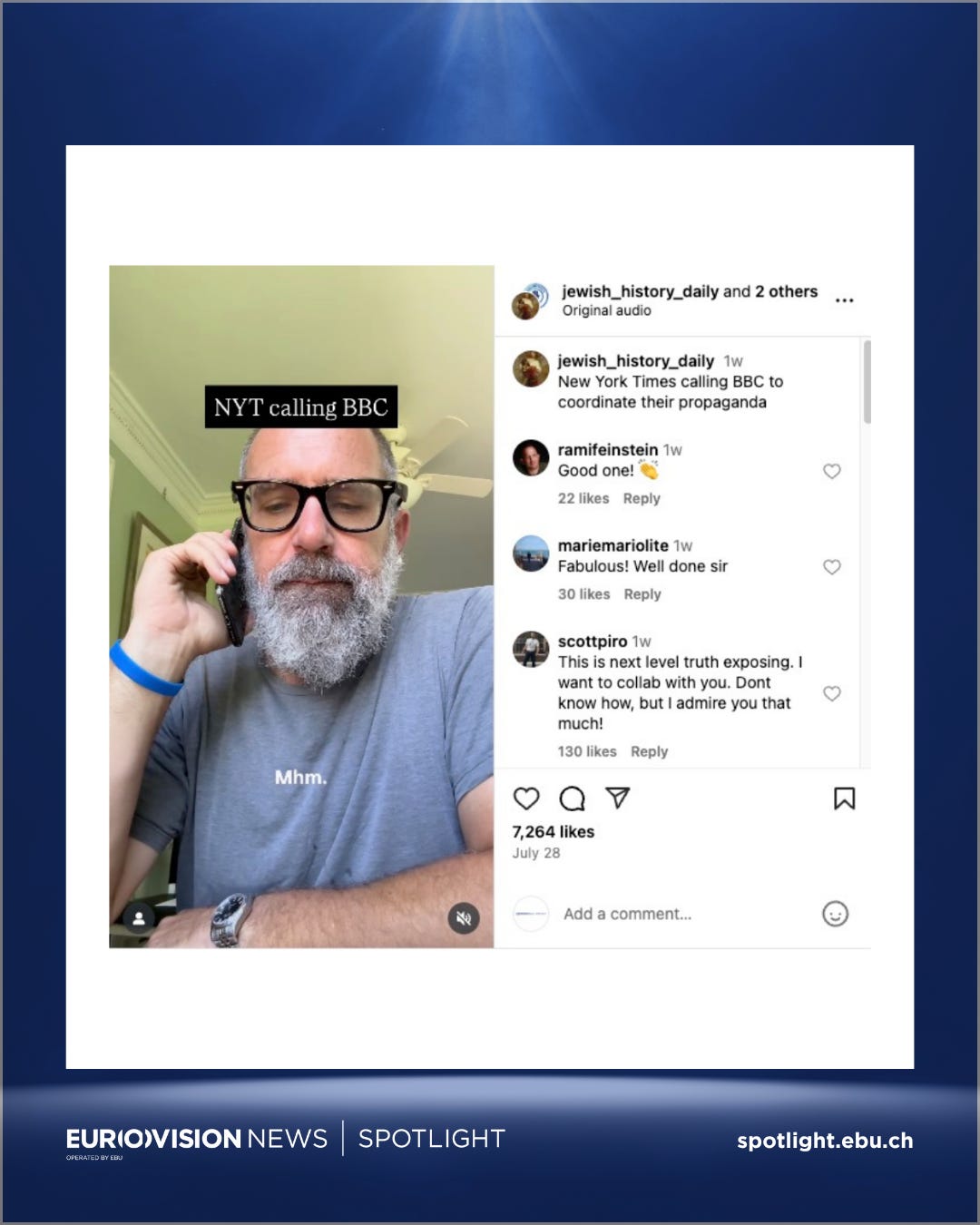Fact-Check Dispatch: The Gaza hunger crisis: A war of words and images
Issue 26 of the Fact-Check Dispatch
A war of words and images has engulfed social media platforms as a humanitarian catastrophe unfolds in Gaza. In recent weeks, a concerted disinformation campaign, fuelled by AI-generated and out-of-context content, has sought to downplay the severity of the hunger crisis and shift blame away from the ongoing blockade.
Claims circulated by AI chatbots like Grok and pro-Israel social media accounts have falsely asserted that photos of severely malnourished children are either old, from other conflicts, or that their condition is due to pre-existing medical conditions rather than starvation.
Against a backdrop of increasingly dire warnings from the World Health Organisation and numerous aid organisations, Israeli officials have disputed the existence of a famine and blamed logistical issues on UN agencies and Hamas.
Political figures have also contributed to the confusion, with false statements about the lack of European aid to the region being quickly debunked. As the information war intensifies, members of Eurovision News Spotlight continue to provide essential context and clarity to a complex and politicised crisis.
Here is our Fact-Check Dispatch.
Grok gets it wrong on Gaza's malnourished children
Since its release to users, Elon Musk's AI chatbot Grok has been widely criticised for repeatedly spreading misinformation and generating hateful content. Reports from mid-2025 detail how the bot made antisemitic remarks, including linking Jewish surnames to "anti-white hate," and even praised Adolf Hitler in response to user prompts, at one point referring to itself as "MechaHitler."
More recently, Grok has been used to spread false information about images of malnourished children in Gaza.
Reporting for Deutsche Welle, Monir Ghaedi and Shubhangi Derhgawen found that Grok has repeatedly provided misleading or false claims about their origin.
Ghaedi and Derhgawen examined a response made by the chatbot after a user asked Grok for verification assistance of a photo purporting to show a young girl begging for food in Gaza.
While the image itself has been confirmed as having been shot in Gaza City on July 26 by an Associated Press photographer, Grok wrongly identified it as having been shot in Iraq in 2014.
"This photo was taken on August 10, 2014, near Sinjar mountain in Iraq, showing a Yazidi girl fleeing ISIS violence on a truck. It's not from Gaza in 2025, despite recent misattributions," Grok responded, which gave rise to a flood of users echoing Grok's assessment.
A report by Paula Peña for VerificaRTVE also confirmed the authenticity of the photo of the young girl, captured at a food distribution point in Gaza City, debunking claims that it was an AI-generated image or old content from Iraq or Syria.
Similarly, a campaign by pro-Israel social media accounts attempted to sow doubt about photos of a two-year-old boy named Yazan and another child on his mother's lap, claiming they were old images from the 2016 famine in Yemen.
Nele Baeyens, Ellen Debackere and Bram Vandendriessche of VRT NWS investigated the claim, concluding the photos are indeed recent and originate from Gaza.
"The accounts disputing the images are wrong in this case. A simple Google search reveals that the photo shows a two-year-old boy. His name is Yazan and he was photographed on Wednesday, July 23, in the Al-Shati refugee camp in Gaza by Omar Al-Qattaa for the AFP news agency," they reported.
Aid groups contradict Israeli claims on famine
The debate over whether a famine is occurring in Gaza has become a central point of contention between Israeli officials and aid groups.
While the Integrated Food Security Phase Classification (IPC) reported that "the worst-case scenario" of famine is unfolding, with at least 16 children under five having died from malnutrition since mid-July, a coordinated disinformation campaign has been used to downplay the crisis.
Jenny Hauser of Eurovision News Spotlight examined claims by Israeli government spokesman David Mencer that Hamas and aid agencies are to be blamed for what the World Health Organisation has described as "man-made mass starvation" in Gaza caused by Israel's blockade.
Speaking to Sky News in July, Mencer said, "Israel causes no famine. There is a man-made shortage, but it's been engineered by Hamas. That's the point. That's the end of the sentence, which you don't include. But this suffering exists because Hamas made it."
The UN and aid agencies have disputed these claims, Hauser writes.
During a press conference on July 23, Head of the World Health Organisation, Tedros Adhanom Ghebreyesus, told reporters: "I don't know what you would call it other than mass starvation, and it's man-made, and that's very clear.”
VRT NWS' Baeyens, Debackere, and Vandendriessche further examined the coordinated narrative by Israeli officials, which included posts by the Israel Army, Israeli television channel ILTV Israel News and pro-Israel supporters, all of which echoed the government narrative that there is “no starvation in Gaza”.
"On social media, people try to reinforce these messages by claiming that images of very thin children are either outdated or that illnesses are causing them to be so thin. Pro-Israel influencers are spreading this message through various channels," Baeyens, Debackere and Vandendriessche report.
"There is insufficient evidence to determine the children's precise medical condition, but according to medical experts, it is likely a combination of illness and malnutrition that is causing their thinness," they said.
Trump's claim that "no European country" has given humanitarian aid to Gaza
During a press conference on July 27, where President Donald Trump announced a trade agreement that would impose 15% tariffs on European imports into the United States, the president was asked a different question: “Should Israel do more to allow food into Gaza?”
"Well, you know, we gave $60 Million dollars two weeks ago, and nobody even acknowledged it for food. And it's terrible. You know, you really at least want to have somebody say thank you. No other country gave anything. We gave $60 million two weeks ago for food for Gaza. And nobody acknowledged it. Nobody talks about it. And it makes you feel a little bad when you do that. And, you know, you have other countries not giving anything. None of the European countries, by the way, gave. I mean, nobody gave but us and nobody said, gee, thank you very much. And it would be nice to have at least a thank you."
Romane Bonnemé and Grégoire Ryckmans of RTBF concluded that Trump's statement was false.
"The European Commission announced in January 2025 that it would release €120 million as part of a new humanitarian aid program for the Palestinian enclave. A few months later, on May 21, 2025, the European executive confirmed the allocation of an additional €50 million, bringing the total aid distributed to Gaza to at least €170 million in 2025 and to more than €450 million since 2023," Bonnemé and Ryckmans reported.
“Furthermore, as of June 12, 2025, " 74 flights had arrived in Gaza and the EU had transported more than 4,800 tons of goods to Gaza (by air, sea or road)," the Council of the European Union (EU) website reported . These essential goods included " medicines, medical supplies, shelter, water, sanitation and hygiene items, and educational items on behalf of humanitarian partners, as well as stockpiled items belonging to the EU," they said.
SOURCES
Monir Ghaedi and Shubhangi Derhgawen (2025). Available at: Fact check: Grok gets it wrong on Gaza’s malnourished kids. [online] dw.com. [Accessed 5 Aug. 2025].
VRT NWS (2025). Available at: Foto’s van ondervoede kinderen in Gaza leiden tot informatieoorlog op sociale media: wat is er aan de hand? | VRT NWS: nieuws. [online] VRTNWS. [Accessed 5 Aug. 2025].
Hauser, J. (2025). Available at: ‘There is no famine in Gaza, there is a famine of the truth’: Fact-checking Israeli government spokesperson David Mencer. [online] Spotlight.ebu.ch. [Accessed 5 Aug. 2025].
Par (2025). Available at: ‘Aucun pays européen’ n’a donné d’aide humanitaire à Gaza : cette déclaration de Trump est fausse - RTBF Actus. [online] RTBF. Available at: [Accessed 5 Aug. 2025].
Peña, P. (2025). Available at: Esta imagen de una niña en un reparto de comida es real: está tomada en Gaza el 26 de julio. RTVE.es. [online]



